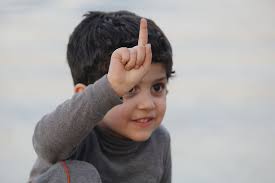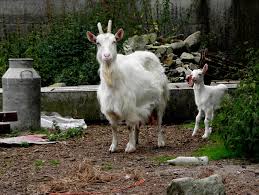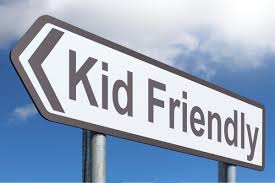
A headline caught my eye this morning:
Miss USA 2018 Sarah Rose Summers on Her New Job, #ConfidentlyBeautiful, and Working with ‘Kiddos’
I searched the article to see if she was quoted as using the word, “kiddo”, and couldn’t find any reference to it in her eloquent and passionate description of her work as a child life specialist. So I am going to put the use of the word down to creative journalism.
But I do read and hear that word often in the vocabulary of child life specialists far and wide, in person and in writing — and it has never fallen easily on my ears. I wonder sometimes if I am being nitpicky. But I looked it up on the internet and my intuition was backed up, first by the definition I found, and secondly by several conversations in the media by everyone from teachers to business women and journalists.
Here are two definitions I found:
Google Dictionary says that it is “used as a friendly or slightly condescending form of address.”
Webster’s New World College Dictionary describes it as a term of affectionate address sometimes mildly patronizing

THAT is the nuance that has always been pricking the back of my brain. It is the fact that there is such a thin line between an affectionate colloquial term and one that imparts a power deferential, demeaning the individual to whom we are referring.
In an article entitled “The word every boss should ban“, Leigh Gallagher says, “But kiddo can also be patronizing and condescending, and while the person using the term may think of it as an expression of benign affection, it doesn’t always come across that way. For a young woman who is trying her best to be taken seriously, ‘kiddo’ can very quickly wipe all that away.”
In a conversation between teachers, the opinions are all over the map, but the underlying message for us is one of being conscious of the language we use, and how it informs our professional relationships with children.
When I think of children in hospitals, I think about how disempowered they are by virtue of being a patient in a medical institution. It seems that anything we can do, including refraining from using unintentionally demeaning language, can usher in more humanity to an inherently dehumanizing environment. Calling children and parents by their given names, even asking how they prefer to be addressed, taking the time to note names and refer back to them, seems like the least we can do to show children and families that we see them for the unique individuals they are – beyond the confines of the hospital.

I love this piece Deb. Spot on!! Thank you for articulating and researching.
>
LikeLiked by 1 person
Thanks Anastasia!!
LikeLike
Deb, this is perfect! For years I have heard this word used and never truly took to it and have never adopted the term. To me, it seems like the professional person using it is trying to establish themselves, like you said, above this child or patient. I have friends and family that are elementary school teachers and even counselors or support staff for kids with disabilities and on the spectrum. When they use it I always ask myself “What is the deal with that word? Is that how their supervisors refer to kids or just a word that is hip or cool to say?”
When I hear it I also think of my older cousins or family that would tease me and say “What up, kiddo” and tap be on the head, making me feel babyish and literally and figuratively “below” them. It really does have a much different connotation, and ESPECIALLY in the way that you mentioned for kids already at their lowest as that point, sitting in a hospital or feeling crummy maybe.
Thank you for bringing this up and the honesty! I completely agree with every word!
LikeLiked by 1 person
Thanks, Becca, and so nice to read your narrative – such a good example of how we put ourselves above others in small ways that have huge impact.
LikeLike
I too love this post! It is absolutely correct- if my daughter says “ I’m bringing the kiddos over.” It is colloquial and appropriate based on our long relationship. If I greet a child I am just meeting with “Hello kiddo.” It is not appropriate. In a field where there is a long history of striving to be given the respect we deserve, it is demeaning. Thanks Deb.
LikeLiked by 1 person
Thank you Teresa. It is all about context, right? I love it when my mother calls me “kiddo”, because I am in my 50s and it makes me feel young and beloved in a wonderful way. But the distinction you point out is such an important one.
LikeLike
Thanks, Deb! This is something that’s always grated on my nerves when I hear it. When I was a child, my dad called me “Kiddo” as a term of endearment, and in the context of child life work, it seems too familiar, too unprofessional. I totally agree that we best show respect to children by calling them by their preferred names, not by a catch-all name for all children.
LikeLike
Yes, Anne! And you also make me think about how it might undermine our own professionalism in the eyes of the medical team as well. Can you imagine a doctor giving a presentation at a conference and referring to the patients as “kiddos”? How we speak about others may reflect our own implicit bias about our status as child life specialists on the team – and even further — many of us being women — we may be undercutting and devaluing the already under-valued place of women who work with children……… So many layers!
LikeLiked by 1 person
I thought I was the only one that was bothered by this term. I too have wondered when it became part of common vocabulary in our field. Thank you for sharing your thoughts.
LikeLike
I was so glad to see this discussion. I recently attended a conference and many of the presenters used the term “kiddos”. It really bothered me to hear the children or patients referred to with that word. I retired a few years ago from Child Life and really don’t remember people using that term. I thought I was out of touch with new language in the field. So glad my thinking skills have not gone away…
LikeLike